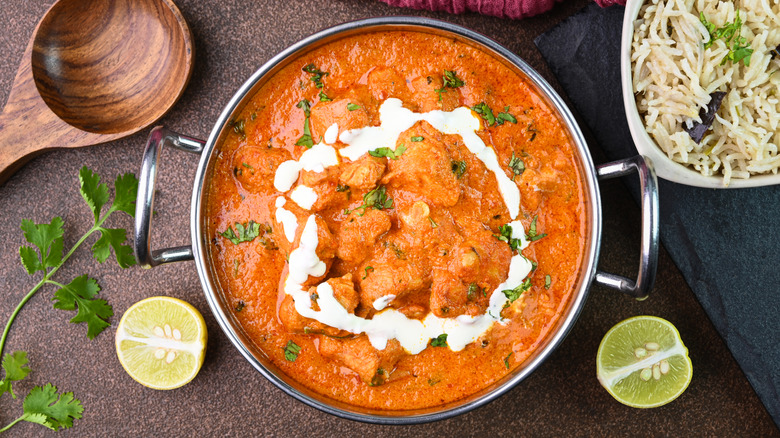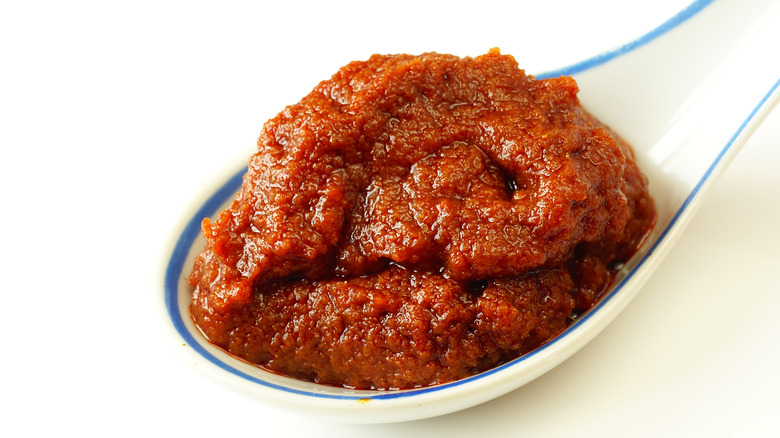Can You Substitute Curry Powder For Paste?
India, Thailand, and Indonesia are just a few places that are well-known for their rich and aromatic curries. Curry has a long and curious history, and the word itself can be hard to define, but one thing ties these dishes together — they usually involve a mix of spices in the form of curry paste or powder. And whether you're making making yellow cauliflower curry or a curried Coronation chicken salad at home, you might be wondering if you can use powder or paste interchangeably.
Chef and restaurateur Abishek Sharma of Madam Ji Ki Shaadi in NYC, which does a nightly tasting menu inspired by Indian weddings, spoke to The Takeout to give us all the hot tips on curry powder and paste substitutions. "You can swap curry paste and powder, but with adjustments," he told us. "Curry paste is more concentrated and contains oil, while curry powder, obviously, lacks moisture."
You'll also need to adjust the amount and the process slightly if you're making the switch. Sharma suggested a tablespoon of paste for every 1 to 2 teaspoons of powder. "If using powder instead of paste, add a bit of oil or water to it to rehydrate it," he said. And while substituting one for the other is definitely possible, there are a few exceptions you'll want to watch out for.
Swapping curry powder for paste won't work in every dish
Chef Abishek Sharma pointed out that in some instances, it's best to stick to the original recipe. "Swapping curry paste for powder won't work in dishes like Thai curries, where curry paste is essential for the texture and depth of flavor," he explained. You also won't want to swap the ingredients when making marinades, since "curry powder doesn't have the same binding quality as curry paste."
Thai curries are primarily made using a curry paste, so using powder instead would not give you those desired flavors. If you're making a red curry, you can make a DIY paste substitute using grated ginger, garlic, red chilies, and fish sauce. And just like when choosing the right spice level at Thai restaurants, making it yourself also means you can customize the heat to your liking.
The texture of curry paste is also perfect for adhering to meats when making a rub or marinade, and can offer more varied flavors since it contains fresh ingredients that dried curry powder doesn't. Most pastes also contain ginger and lime or vinegar, which are great for tenderizing meat. Generally speaking, if you're wanting your curry to turn out thicker, it's best to stick to curry paste – substituting it for curry powder without another thickening ingredient could give you a stew-like consistency. And always consider the type of flavor profile you want from the dish before you switch the ingredients.

